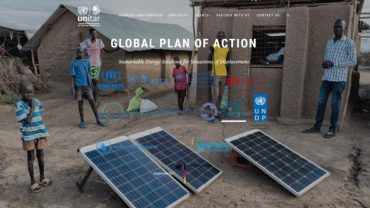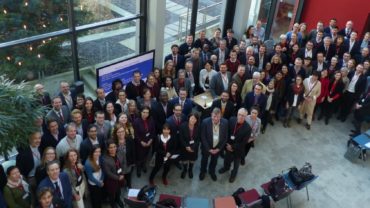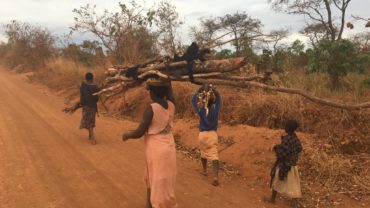Providing adequate cooking fuel and clean-burning, fuel-efficient stoves in displacement settings has long been a major challenge for local authorities, humanitarian agencies, non-governmental organizations, local communities and refugees themselves. Refugees generally have limited access to modern cooking solutions. Most either depend on insufficient humanitarian agency handouts of ‘in-kind’ firewood or have to travel long distances to collect firewood.
There is significant potential for private-sector engagement in this context – which, though largely overlooked to date, could result in win-win scenarios for all stakeholders. Refugee camps and other displacement settings present opportunities for private-sector cooking fuel companies to expand their customer bases, with the added advantage for vendors of offering concentrated demand and scope for economies of scale.
For the Kakuma refugee camp complex in Kenya, the Moving Energy Initiative (MEI) decided to engage with the private sector directly. The MEI requested expressions of interest from local private-sector companies for expanding sales and distribution of fuels in the complex through the concession. The winning company – National Oil Corporation of Kenya – is to receive a prize of $50,000 for its proposed concession to supply liquefied petroleum gas both to refugees in the Kakuma complex and to the surrounding host community.
UNEP Copenhagen Climate Centre contributed to the case study on Tanzania in the publication, as well reviewed the report.
Click here to download the report.
The MEI also conducted interviews with various stakeholders in other contexts and countries who are engaged in efforts to develop market-based approaches to providing clean, fuel-efficient cooking solutions to refugees.
Based on the interviews and the concession process, the MEI recommends greater donor investment and longer-term guaranteed funding for cooking interventions. This is needed to allow sufficient time to build sustainable markets and secure the requisite engagement and investments from the private sector.
Larger, longer-term investments by the private sector – supported through partnerships with donors and humanitarian agencies – in infrastructure and demand creation (both in and outside the refugee community) can reduce the price of alternative solutions and support a gradual transition away from subsidies.



